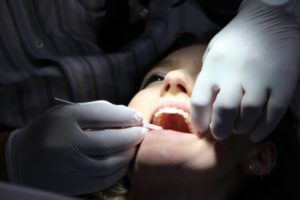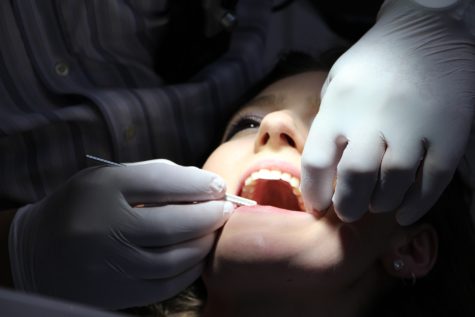DEVON, England — Going to the dentist isn’t usually an enjoyable occasion, but could the experience be improved if it took place at, say, the beach? A new study finds that hooking dental patients up with a virtual reality beach setting while being treated not only lowered anxiety for them, but it even decreased levels of pain.
Researchers at the Universities of Plymouth, Exeter and Birmingham studied the effects of virtual reality as a distraction on 70 patients during a visit to the dentist. The patients, who were all at least 18 years old, were split into three groups, with two groups being fitted with a VR headset and handheld controller while being treated for fillings and/or extraction. The third group served as the control and received traditional care.

The team hoped their findings might help shape treatment options for patients in healthcare settings as VR continues to become more mainstream.
“The use of virtual reality in health care settings is on the rise but we need more rigorous evidence of whether it actually improves patient experiences. Our research demonstrates that under the right conditions, this technology can be used to help both patients and practitioners,” says Dr. Karin Tanja-Dijkstra, lead author of the study, in a university press release.
For the participants who were tasked with wearing VR headsets, one group was shown a beach setting on their goggles, while another was taken on a virtual tour of a city. Using the handheld controller, the patients were able to “walk” around their given settings during the treatment.
After the procedure was complete, the patients filled out questionnaires assessing levels of pain and stress they felt. The participants in the VR groups were also given questionnaires evaluating their virtual experiences. One week later, they were polled over the phone by researchers, this time assessing how vividly they remembered the dental experience — including trivial details such as sounds and smells from the office — and any associated discomfort they felt.
The researchers found that patients who toured the virtual beach reported significantly less pain and anxiety than the other two groups, while patients who toured the city reported similar levels of pain as those who received traditional dental care without VR.
“We have done a lot of work recently which suggests that people are happiest and most relaxed when they are at the seaside,” says study co-author Dr. Mathew White from the University of Exeter. “So it seemed only natural to investigate whether we could ‘bottle’ this experience and use it to help people in potentially stressful healthcare contexts.”
Virtual beachgoers also recalled having less pain during the follow-up surveys, while, again, those who toured the virtual city showed no difference from those in traditional care.
Because there was a clear difference in pain levels for patients who toured the beach versus those who toured the city, the authors believe that simply distracting people with VR won’t make painful experiences better. The setting itself also plays a significant part in how the patient responds.
The team hopes to evaluate how the beach setting affects patients in other healthcare settings and how other natural environments can make experiences less stressful.
The study was published this week in the journal Environment & Behaviour.

Comments
Comments are closed.